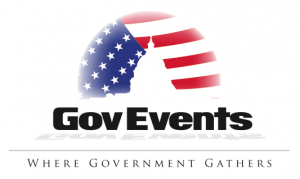 Our connected world has enabled everyday people to become trusted sources for news and information. Take for example, buying a car. "Historically," you would do research through the mainstream media reading Consumer Reports and car magazines. You'd get the input of professionals in the car industry, likely someone you had never heard of before, but trusted them because cars were their job.
Our connected world has enabled everyday people to become trusted sources for news and information. Take for example, buying a car. "Historically," you would do research through the mainstream media reading Consumer Reports and car magazines. You'd get the input of professionals in the car industry, likely someone you had never heard of before, but trusted them because cars were their job.
Today, you may still do some traditional research, but you may also put a post on Facebook or Twitter asking your friends and connections their thoughts on the models you are considering. What you get back is first hand knowledge from the people you know. The feedback is in more than the words they offer in their response. What you know about their personality and lifestyle will likely impact how you view their input. Those offering positive feedback have become ambassadors for the car brand.[Tweet "Those offering feedback have become ambassadors for the brand. #GovEventsBlog"]
Now, let's move this to the event world. Events are not objects like cars - they are living, breathing entities that are powered by the people that plan and attend them. Because of this, the perspective of people is critical in making decisions about what events to attend. With this in mind, a formalized event ambassador program should be part of event marketing.
Event Manager Blog provides some great tips on how to build your event ambassador "army." Especially germane to the government audience is the advice to look for people who are connected and vocal in the social media realm as well as people who have deep and active networks offline.[Tweet "Look for people who are connected and vocal in the social media realm. #GovEventsBlog"] While ambassadors that are active and respected in online networks can help in the viral spread of information, having people that travel in physical networks and can spread the word to an even more diverse audience is equally beneficial.
The personality and reputation of the ambassador will impact how people view the event brand. If they respect the ambassador as a smart leader in the field they will have the feeling that "if so and so loves this event, it must be good." Let's call it the "Mikey likes it" test. Add to this the social trend of FOMO -- or Fear of Missing Out -- and it becomes clear how persuasive peers can be in making an event move from being interesting to being a "must attend." Now, this "peer pressure" can also backfire if your ambassador does not have a great reputation in the community. It is important to vet your ambassador's reputation among your attendee base before engaging them.[Tweet "Vet your ambassador's reputation before engaging them. #GovEventsBlog"]
There should be a clear delineation between ambassadors and staff. Ambassadors should not be compensated with money for their support. Event coordinators can offer them some extra perks - input on speaker selection, early registration discount or free passes, access to certain activities within the event, but the ambassadors should be encouraged to be transparent about what they get as part of their "involvement" with the event. In addition to this transparency, creating a clear break between event and ambassador allows individuals to be more casual and personal in how they talk about the event, something staff cannot do.
Beyond the perks, ambassadors can use their role to help build their own personal brand and stature within their professional group. Look for people who are starting to get a following or attention in your industry and approach them as ambassadors. They may be the most willing to put the effort in as it could have a dramatic effect on their own personal marketing goals.[Tweet "Ambassadors can use their role to help build their own personal brand. #GovEventsBlog"]
For those looking to become an ambassador, the best way is to actually start the "job" before you have it. Actively follow and share posts from the events and organizations you enjoy and respect. After you've done this a bit, you can reach out to the organization and see if they would be interested in working more closely with you. Show them the response your event-related posts have gotten in your network to illustrate your reach and influence.
Once an organization has ambassadors it is important to make sure they have all of the details on your planned social media posts and campaigns so they can use them in their outreach, ensuring there is a consistent message going out about the event.
We'd love to hear from you - how have event ambassadors helped your marketing? For the ambassadors themselves - what motivates you to talk about industry events? If you think you would make a good ambassador, check out some of your favorite events on GovEvents.com and contact the organizers to see if you can get involved.



